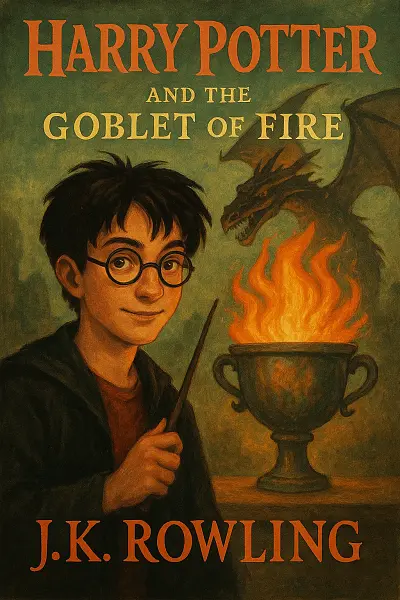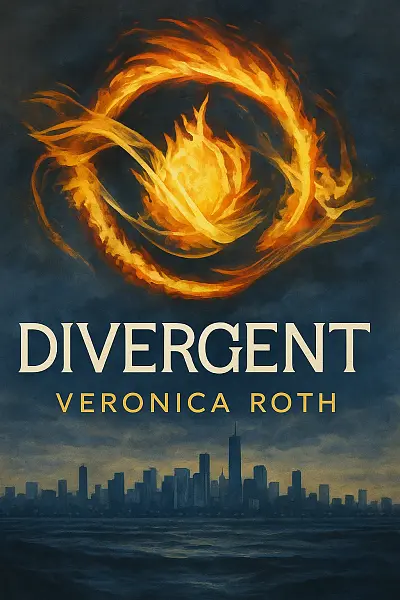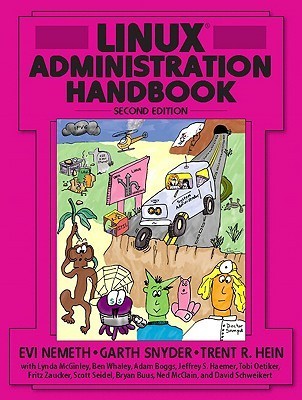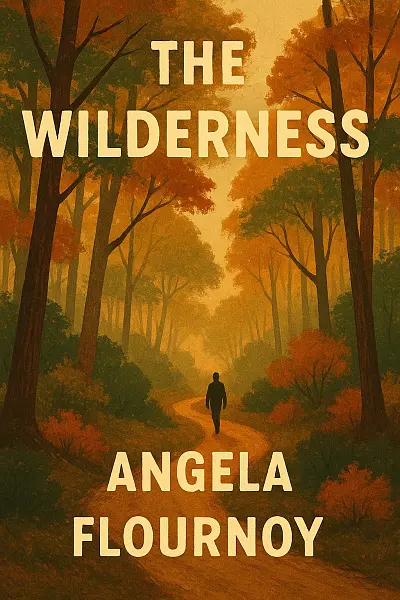
The Wilderness
by: Angela Flournoy
Desiree, Danielle, January, Monique, and Nakia are five Black women navigating their early twenties amid the rush of New York and Los Angeles living. Their close-knit friendship is their anchor—until shifting careers, secrets, and family strains begin pulling them in separate directions.
When careers falter, relationships strain, and simmering resentments emerge, the women must confront what it truly means to show up for each other as adulthood’s messy realities intrude. Is their bond strong enough to survive the storms, or will growing pains lead them down diverging paths?
Flournoy’s voice is witty, warm, and heartbreakingly real—capturing every laugh, ache, and hope.
"Sometimes it takes the cracks in a family's foundation to let the light of truth and understanding finally seep in."
Let's Break This Down
The Author's Voice
Atmosphere
Step inside The Wilderness and you'll find a world humming with warmth and tension. Flournoy creates a setting so textured you can practically smell the dry earth and hear city sounds pressing at the edge of each scene. The mood is equal parts hopeful and melancholic—a blend that makes ordinary moments crackle with unspoken longing. Emotional weather shifts with the story’s ebb and flow, always grounded in a vibrant sense of place.
Prose Style
Angela Flournoy’s writing is a delight for those who appreciate a delicate touch. She balances lyrical beauty with down-to-earth crispness—never overwrought but richly evocative. Expect dialogue that rings true and descriptions that shimmer without showboating. Her sentences range from short and punchy to elegantly winding, inviting you to pause and marvel before moving on. Every word feels chosen, yet nothing is fussy.
Pacing
Forget rushing—this is a story that trusts its own timing. The narrative unfolds at a thoughtful, measured pace, letting characters and relationships shape themselves organically. While some might crave a quicker beat, the leisurely rhythm gives each emotional shift space to breathe. The plot refuses cheap spectacle, instead building momentum through small dramas: revelations, quiet heartbreaks, and moments of stubborn hope.
Character Focus
Characters are everything here. Flournoy drills deep into their lives, exposing messy contradictions and complex ties without ever slipping into caricature. Each voice is distinct, each flaw sympathetically rendered, and relationships pulse with authenticity. You’ll find yourself invested not just in what happens, but in how these people grow (or don’t) as the story unfolds.
Thematic Layers
Beneath the surface, The Wilderness tackles big questions with a light touch. Flournoy explores family, memory, and home—never dogmatic, but always thoughtful. Themes of resilience, legacy, and the search for belonging ripple through the narrative, offering plenty for readers to chew on without ever slowing the story’s emotional current.
Overall Vibe
Imagine lingering at a family gathering: laughter, argument, old wounds, sudden tenderness. The writing is intimate, sensory, and emotionally honest. Flournoy’s style is a quiet invitation—come close, listen, bear witness. If you’re looking for atmospheric immersion and character-driven storytelling, this book absolutely delivers.
Key Moments
- Detroit’s crumbling houses echoing with family secrets
- Virgie’s raw, restless journey for self-worth amid chaos
- Midnight arguments in the Turner kitchen—every word a bomb
- Fragments of memory stitched together in luminous, poetic prose
- Francis Turner’s mysterious disappearance haunting every chapter
- Sibling rivalries explode in heartbreaking honesty and humor
- The city itself—alive, wounded, unforgettable—becomes a character
Plot Summary
The Wilderness by Angela Flournoy centers on the death and aftermath of Everett Thompson, the matriarch of a multigenerational Black family in Detroit. After her passing, her children—mainly Viola, Son, and Lelah—are forced to confront the family’s complicated legacy, the declining condition of their ancestral house, and their personal shortcomings. The plot moves through a series of flashbacks and present-day events, revealing old betrayals, Lelah’s struggle with gambling addiction, and Son’s resentment about his role as the eldest. The climactic moment arrives when the family must decide whether to sell or keep their dilapidated house, mirroring their struggle to reconcile with their own past. Ultimately, there’s no neatly resolved ending, but the family finds a shaky sense of unity, facing their burdens together rather than apart.
Character Analysis
Viola, the eldest daughter, strives to keep everyone together, often burying her own grief and trauma under a mask of stoic resilience. Son, the oldest sibling, shoulders responsibility and guilt, feeling trapped by both familial obligations and past failures. The most dynamic arc arguably belongs to Lelah, who cycles through self-sabotage but gradually confronts her addictions and fractured sense of self. Each character evolves as secrets and long-standing grudges come into the open; their arcs reflect a move from isolation to the beginnings of understanding and interdependence.
Major Themes
The story dives deep into themes of memory, inheritance, and the meaning of home—using the family’s decaying Detroit house as a living symbol of both hope and loss. Flournoy brilliantly explores how trauma—both personal and generational—can both bind and fracture a family, with each character navigating a different wilderness of the mind. There's also a constant tension between holding on and letting go: whether it’s the house, guilt, or outdated dreams. Throughout, the book asks whether facing the pain of the past can allow healing or if some wounds are simply carried forward.
Literary Techniques & Style
Flournoy’s prose is rich yet accessible, filled with immersive detail that brings Detroit and the Thompson house to life. She frequently employs shifting perspectives and nonlinear storytelling, allowing readers to piece together history alongside the characters. Symbolism is everywhere—most notably, the house embodies the family’s shared burdens and histories. Her deft use of interior monologue and sharply observed dialogue deepens characterization, making conflicts both suspenseful and painfully relatable.
Historical/Cultural Context
Set in post-recession Detroit, The Wilderness captures the city’s decline and resilience, touching on issues like redlining, housing foreclosures, and the disappearing Black middle class. The story is grounded in African American familial and cultural experiences, shaped by decades of socio-economic shifts in America’s Rust Belt heartland. These historical realities permeate everything from the characters’ choices to the state of their community.
Critical Significance & Impact
This novel has earned wide acclaim for its authenticity and compassionate depiction of African American family life and urban decline. Flournoy’s work stands out for its emotional honesty and complex, believable characters, making it a standout in modern family sagas. The Wilderness continues to resonate as cities and families grapple with the legacies of economic hardship, making it deeply relevant and frequently discussed in contemporary literary circles.
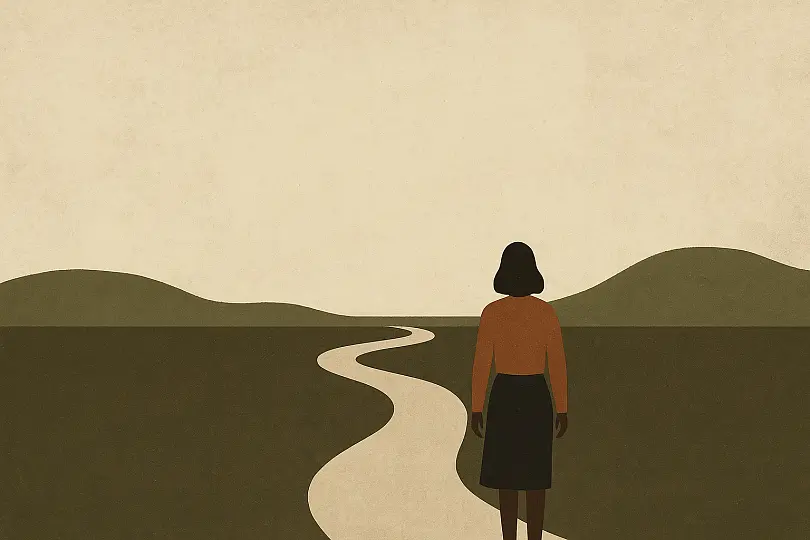
Family roots run deep in a vanished Detroit, where memory shapes survival.
What Readers Are Saying
Right for You If
If you’re someone who loves character-driven stories with rich emotional layers, The Wilderness is totally your vibe. This book really digs deep into the messy, beautiful, sometimes painful dynamics of family and community—honestly, it hits those real-life feels without being too dramatic or preachy.
- Perfect for:
- Fans of literary fiction who appreciate a slower, immersive read—you know, people who turn the last page and just sit with their thoughts for a bit.
- Anyone who likes books that explore identity, memory, and the nuances of home; you’ll definitely find yourself nodding along or maybe even getting a little teary.
- Readers who obsess over beautiful descriptions and memorable, distinct character voices. If you love picking up on subtle details, you’ll find tons to appreciate here.
But hey, just being real—if you’re all about action-packed plots, wild twists, or super fast pacing, this might not be your thing. There’s a lot more quiet reflection and internal journeys than explosive drama. Those who prefer straightforward storytelling or need a heavy dose of suspense will probably find it a little slow or meandering.
Also, if you’re not into books that dig into family struggles and generational challenges, or if you’re looking for a pure escapist read, you might wanna skip this one. It’s more for folks who love peeling back the layers and sitting with imperfect, super relatable characters.
So, if you love stories that linger and keep you thinking long after you finish, The Wilderness is definitely worth picking up. Just grab a cozy blanket and dive in!
What You're Getting Into
Set against the backdrop of a rapidly gentrifying Los Angeles, The Wilderness by Angela Flournoy follows a family grappling with change, legacy, and the secrets that bind them together.
As the siblings navigate old wounds and new realities, they’re forced to confront not just their heritage, but what the future holds for each of them in a city that’s shifting beneath their feet.
With its vibrant sense of place and heartfelt focus on family, this novel offers up a compelling, emotional journey full of tension and hope—perfect for readers who love contemporary stories about belonging, resilience, and the ties that last through generations.
Characters You'll Meet
-
Augustine "Auggie" Turner: The steadfast matriarch of the Turner family, she anchors the household through decades of turmoil and change. Her resilience and deep connection to the house shape the family's legacy.
-
Francis Turner: The flawed but earnest patriarch whose struggles with his own demons profoundly affect the family's trajectory. His choices and absences ripple through the generations.
-
Lelah Turner: A fiercely independent daughter battling addiction and financial hardship. Lelah’s journey is one of vulnerability and grit as she returns home, seeking redemption and stability.
-
Cha-Cha Turner: The eldest Turner sibling striving to keep the family together while dealing with his own unsettling visions. Cha-Cha's sense of duty and questioning of reality drive much of the novel's emotional tension.
-
Troy Turner: A pragmatic and sometimes distant brother whose attempts to find practical solutions often put him at odds with the rest of the family. Troy’s perspective on selling the childhood home brings family conflicts to the surface.
More Like This
If The Wilderness by Angela Flournoy made you think of sprawling family stories, you might feel a familiar tug reminiscent of The Vanishing Half by Brit Bennett. Both novels peer deeply into the crisscrossing bonds of family, deftly exploring the ways in which personal history and generational secrets shape individual identity. Flournoy’s textured storytelling also shares DNA with Homegoing by Yaa Gyasi, particularly in the way both writers navigate themes of legacy and belonging across time—layering multiple perspectives to illuminate the roots and chaos we inherit.
On the screen, the emotional cadence of Flournoy’s work is strikingly aligned with This Is Us. Like the beloved TV series, The Wilderness balances bittersweet nostalgia and messy, real-life complications—mingling humor and heartbreak as it portrays a family weathering their personal storms. Both invite you to become intimately tangled in the characters’ joys and sorrows, making each moment land with real emotional weight.
Critic's Corner
What does it cost to remain tethered—truly tethered—to other people as you grow into yourself? The Wilderness by Angela Flournoy circles this existential question with striking candor, mapping the wild, shifting terrain of friendship, ambition, and identity for five Black women navigating the blur between youth and middle age. Across decades marked by both chaos and possibility, Flournoy asks: What do we owe the people who knew us before we knew ourselves?
Flournoy’s writing is astoundingly agile, switching effortlessly between sly wit and emotional gravity. Her prose feels lived-in—dialogue that crackles, interiority that aches and pulses with authenticity. The structure, as unfussy as it is daring, gives all five women equal footing without ever collapsing into flat archetype or forced balance. Flournoy sketches their flaws and aspirations with unflinching empathy, layering memory and present moment in a collage of sensation: the warmth of a kitchen in Brooklyn, the chilly anonymity of LA, the sting of a sibling’s offhand remark. Her narrative technique—jump-cuts through time, glints of group chat banter rounded with private grief—invites the reader into the hubbub and hush of enduring friendship. And the humor? Disarmingly sharp, the kind that lingers, cutting through the story’s complex sorrow. Language here is both precise and cacophonous, mirroring the chaos of lives moving forward and apart.
What elevates The Wilderness is its thoughtful, fresh engagement with belonging and agency—not just for these women and their cultures, but for anyone bracing against adulthood’s slow violence and small mercies. The book probes the way race, class, history, and ambition thrum in the background and foreground of daily life; it’s unflinching in showing how Black women’s friendships become both refuge and crucible within a society that too rarely champions their fullness. Flournoy shades classic questions—What is home? Who shapes our most private selves?—with heady relevance, paralleling the friends’ personal fissures with the political and ecological turbulence of a changing America. The novel’s generosity to its characters’ contradictions—ambition paired with fatigue, love tinged with old wounds—suggests not answers but hard-won, provisional wisdom: everyone, it claims, is always in some kind of wilderness.
Within the contemporary literary landscape, this novel belongs in conversation with Brit Bennett’s The Mothers, Tayari Jones’ An American Marriage, and even Elena Ferrante’s Neapolitan cycle: all works that elevate women’s intimate dramas to the epic. Flournoy deepens her own legacy after The Turner House, confirming her status as a master of ensemble storytelling and attentive chronicler of Black interior lives. She innovates within the “friendship novel,” offering a dynamic portrait that feels uniquely of this moment—irreverent, honest, and capacious.
There are moments when pacing wobbles—occasionally lingering too long in domestic minutiae, sometimes brushing past major plot turns—but The Wilderness more than earns its emotional power and narrative ambition. Flournoy’s sophomore novel is at once sprawling and intimate, sorrowful and sly: a generous, genuinely era-defining epic about how we hold each other close while forging our singular paths through the thicket. This is a book that feels absolutely essential right now.
Community Thoughts
I still can't shake the image of that hallway scene with the flickering light, where Marcus just stands there, paralyzed. It burrowed into my mind and made me question my own choices in the dark. Flournoy knows how to haunt a reader.
I swore I was done after chapter 7 but then that one line about the moon and memory hit me so hard I just kept turning pages. Flournoy knows how to burrow into your brain and refuse to leave.
I'M STILL THINKING ABOUT THE WAY Flournoy describes the old man's silence in chapter eight. That quiet, heavy pause messed with my head for days. How does a book do that? The stillness creeped right into my dreams.
okay but that bit where the city’s silence got LOUD? i had to stop reading and just stare for a minute. the way flournoy flips quiet into chaos is actually unreal.
there’s a line in The Wilderness that keeps echoing in my head: “we all carry our ruins with us.” it’s stuck with me for days. can’t get over how it reframed every chapter after.
Leave Your Review
Local Take
Why It Matters
Angela Flournoy’s The Wilderness strikes a powerful chord with readers in the US—especially those from urban, multigenerational families.
-
Parallel historical events:
The decline of Detroit echoes America’s struggles with deindustrialization, racism, and urban flight. Readers living in areas affected by similar downturns (think Detroit, Cleveland, Baltimore) instantly recognize the bittersweet nostalgia and frustration in the story’s crumbling family home. -
Cultural values:
Themes of family resilience, hope against odds, and forging identity fit neatly into American narratives of perseverance. But Flournoy’s nuanced look at fractured dreams and systemic injustice also sparks reflection—especially among communities grappling with ongoing economic or racial disparity. -
Plot points that resonate uniquely:
The conflicted siblings and complex legacies tap into generational divides common in many American families. Some plot turns—like the struggle to keep the house—hit hard in places where foreclosure and housing insecurity remain fresh wounds. -
Literary echoes:
Flournoy’s style recalls the Black literary renaissance—think Toni Morrison’s focus on place, August Wilson’s intergenerational drama—while challenging the American Dream mythos.
It’s a story that feels achingly familiar, yet invites deeper conversations about what “home” truly means in contemporary US culture.
Food for Thought
Notable Achievement:
Angela Flournoy’s The Wilderness has been widely celebrated for its nuanced exploration of Black American family life, gaining recognition as a finalist for the National Book Award and making a significant impact within contemporary literary circles for its authentic voice and immersive storytelling.
- The Wilderness has sparked vibrant discussions about generational trauma, resilience, and community, inspiring countless readers and book clubs to reflect on their own family histories and cultural identities.
- The novel’s acclaim has cemented Flournoy as an essential voice in modern fiction, drawing comparisons to literary greats and expanding the conversation about representation in American literature.
Like what you see? Share it with other readers



